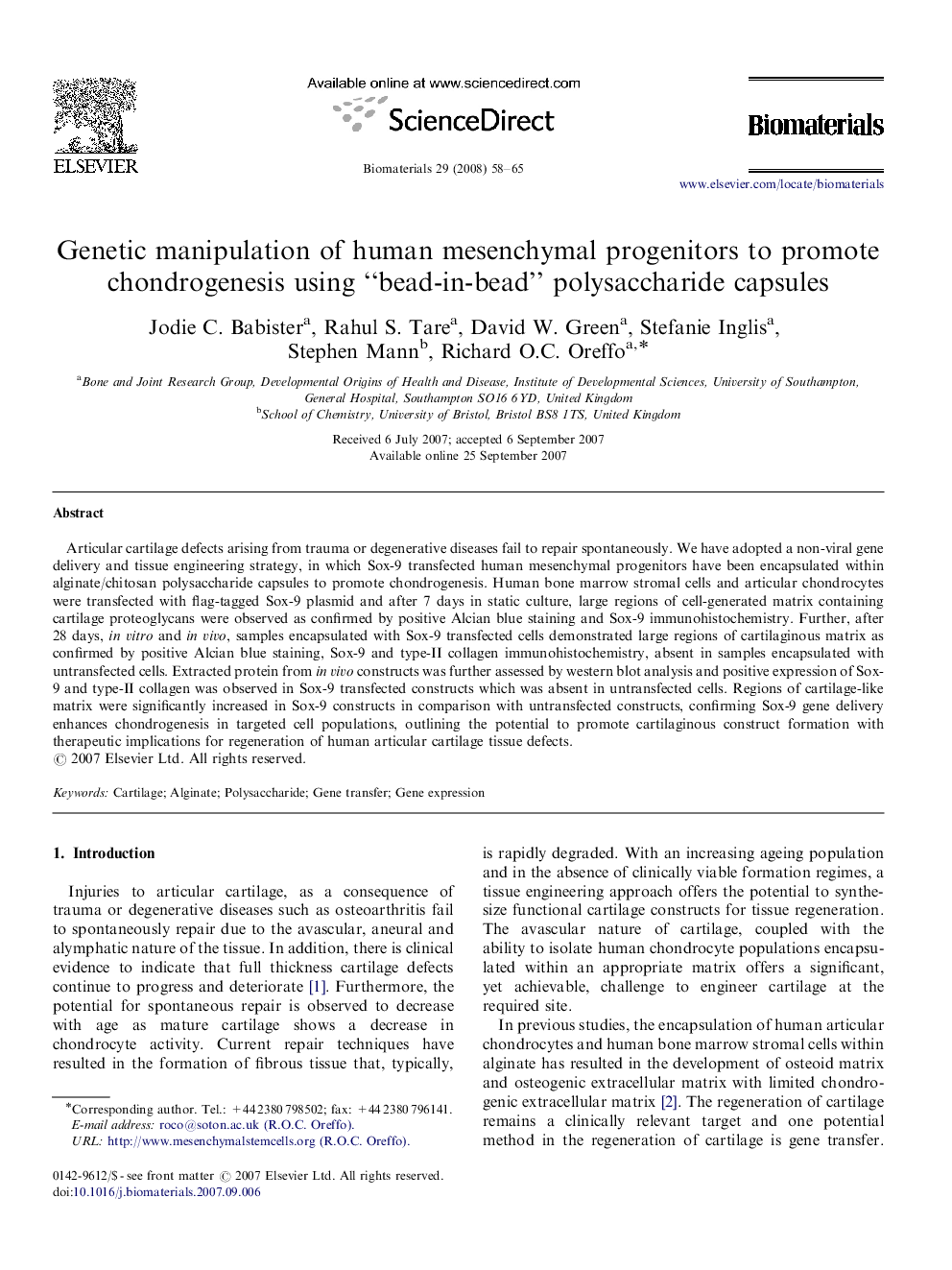| Article ID | Journal | Published Year | Pages | File Type |
|---|---|---|---|---|
| 10186 | Biomaterials | 2008 | 8 Pages |
Articular cartilage defects arising from trauma or degenerative diseases fail to repair spontaneously. We have adopted a non-viral gene delivery and tissue engineering strategy, in which Sox-9 transfected human mesenchymal progenitors have been encapsulated within alginate/chitosan polysaccharide capsules to promote chondrogenesis. Human bone marrow stromal cells and articular chondrocytes were transfected with flag-tagged Sox-9 plasmid and after 7 days in static culture, large regions of cell-generated matrix containing cartilage proteoglycans were observed as confirmed by positive Alcian blue staining and Sox-9 immunohistochemistry. Further, after 28 days, in vitro and in vivo, samples encapsulated with Sox-9 transfected cells demonstrated large regions of cartilaginous matrix as confirmed by positive Alcian blue staining, Sox-9 and type-II collagen immunohistochemistry, absent in samples encapsulated with untransfected cells. Extracted protein from in vivo constructs was further assessed by western blot analysis and positive expression of Sox-9 and type-II collagen was observed in Sox-9 transfected constructs which was absent in untransfected cells. Regions of cartilage-like matrix were significantly increased in Sox-9 constructs in comparison with untransfected constructs, confirming Sox-9 gene delivery enhances chondrogenesis in targeted cell populations, outlining the potential to promote cartilaginous construct formation with therapeutic implications for regeneration of human articular cartilage tissue defects.
